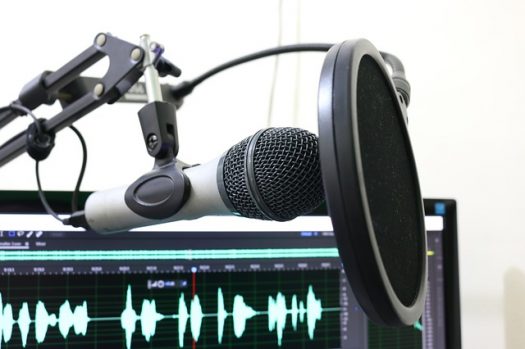Al Evers
An act of Congress that was supposed to level the playing field for performers and songwriters seems to do little to upset the status quo. As The Who once said, “Meet the new boss, same as the old boss.”

The Orrin G. Hatch-Bob Goodlatte Music Modernization Act, signed into law by Donald Trump last October, was much heralded copyright reform — the first in twenty years. The legislation, a consolidation of the MMA, the Classics Act and the Allocation for Music Producers Act, was intended to modernize copyright-related issues for music and audio recordings in the digital age. In retrospect, it seem like less of a solution and more like a part of the problem.
Pretty much everyone in the music industry agreed that the rate setting process for both mechanical and streaming royalties was antiquated. Having a central location for storing publishing and master ownership information for all recordings — as well as for obtaining digital mechanical licenses — would be ideal. There also needed to be payments to heritage artists whose music is broadcast on satellite services, and a clear system for paying producers and engineers for their share of the master recording income derived from performance.
The MMA promised all that and more. The changes it brought about, however, came with a price.
For starters, all digital service providers, which includes both streaming services as well as online music sellers, got a free pass (or “safe harbor”) for mechanical rights infringements that were not litigated prior to December 31, 2017. That meant that millions of dollars of previously unlicensed or unallocated streams and sales would go unaccounted. It also meant that the property rights vested in the creators of intellectual property were abrogated, as rights holders can not pursue infringement claims that might not have been known to them before the 2017 cut-off date.
In addition, the law provided for existing unpaid digital mechanical royalties, protected by millions of Notices of Intent filed with the Copyright Office (mainly against Google and Spotify), to be transferred to the Mechanical License Collective. If not claimed by the rights owners within a year, the funds are to be disbursed to the ten publishing companies with the largest market shares, even if the companies don’t actually control the assets generating the income they will be dividing among themselves.
This leaves little incentive for the MLC to find the rightful owners, even though it includes works which may be properly registered with the Copyright Office, as well as with the Harry Fox Agency and Music Reports Inc., companies that channel royalties from DSPs to rights holders. Variety Magazine has projected money involved might amount to well over a billion dollars.
Going forward, unattributed funds will reside with the MLC for three years before being similarly disbursed. Once these funds are gone from the pool there is no grievance provision- they can’t be claimed.
With increased payments to creators being one of the main selling points of the legislation, where would the money come from to increase rates? The Copyright Royalty Board has already locked-in rates for non interactive web streams through 2020, and physical mechanical royalties are locked for the next five years, so the idea that a “willing buyer, willing seller” environment would enable composers to be paid a higher rate from services like Sirius XM is on hold for now.
This begs the question: are record companies agreeing to be paid less per stream or download, or do the DSP’s have the funding to pay more?
Spotify is entering into negotiations with major labels and music publishers this year, hoping to lower the rates paid. Since Spotify is partly owned by major investment groups, along with major record labels that own many of the major publishers, and is hemorrhaging money, how are songwriters going to get paid more? The same could be asked about Pandora, which was just driven into a sale to Sirius by money woes.
It doesn’t look like the DSPs are going to accept royalty increases gracefully. The outcry against the Copyright Royalty Board’s rate determination affecting mechanical royalties on streaming services, a 44% increase over a four years period, came fast and furious from Amazon, Google, Spotify and Pandora.
The MMA has also done little to ease beaucratic requirements for songwriters and publishers. Instead of requiring labels and aggregators to deliver recordings to DSPs with complete and accurate data identifying all rights owners, both for the masters and the compositions, and making the labels and aggregators responsible for any failure to provide the data, a new licensing body has been created that will solely issue blanket licenses for streaming services. If you need something else, say a mechanical license for physical goods, a synchronization license, or a performance license, you have to get that from another entity.
The MMA’s creation of MLC adds a new layer of licensing bureaucracy with a projected budget of $26-40 million that’s paid for by the DSPs. This put further weight on the shoulders of publishers and songwriters, who will need to enroll their entire catalog with the agency after already registering the songs with the copyright office, the performing rights organization, the HFA and MRI.
The struggle to determine who will serve on the MLC’s Board of Governors has been highly contested between two groups. One, cosponsored by the National Music Publishers Association and the Nashville Songwriters Association International, is something of a consortium of major publishers, with ownership deeply intermingled with major record labels and some of the DSPs. The other, the American Mechanical Licensing Collective, claims to be more reflective of the independent music business and without the built-in conflict-of-interests it sees with the former group.
Whoever wins will have to accept the no bid contract to use SoundExchange and its horribly flawed data base (MDX) as the foundation for the MLC. At the end of 2017, SoundExchange had $294 million in unpaid royalties due to bad data or missing documents.
The MMA also made changes to the the way royalty rate disputes are processed in the Southern District Court of New York, moving away from a system in which a single judge was assigned to handle all cases.
While having a broader range of judges and including broader evidence from other facets of the industry to create “free market” conditions for rate negotiations could be a good thing, as fresh perspectives would be involved, not all judges understand the issues, so time would be spent in each case educating the court. Additionally there is the danger of the American Legal Institute and their “restatements” of copyright law being used as “cheat sheets” by less knowledgeable judges, a move that would lead to a lessening of copyright protection for creators.
The fights over the MMA in Congress were essentially battles by lobbyists trying to grab or hold the biggest part of the pie possible for their clients. Sirius unsuccessfully complained that terrestrial radio should have to shoulder their share of the burden of payments for recordings being broadcast. The failed Cruz amendment would have allowed other entities with more than a 5% market share to compete with the MLC and the inclusion of language protecting ASCAP and BMI. During the entire process, independent songwriters and artists remained underrepresented and unheard.
Because of the MMA, it appears the rich and powerful in the music business will get richer and more powerful. The rest of us will suffer the consequences. The battle continues.
Al Evers is the founder and CEO of A Train Entertainment, started in 1985 as an option for independent artists to receive professional assistance in developing and managing their musical careers. A Train administers over 230,000 song titles, while keeping ownership in the hands of the artists who created them.





As much as I feel for independent creators who are subject to greedy publishers and leech-like industry organizations, I can’t drum up much sympathy for copyright holders. The system is already far too skewed towards excessive rights for content holders. I am also adamantly opposed to retroactively granting more rights for older works.
My advice to independent artists is to charge for live performances and allow unrestricted recording/sharing among fans. If you are successful, then crowd-fund the creation of substantive works which are then subsequently released to the world without restriction. In other words: Follow the FOSS model. Those parasitical organizations won’t have much power if you stop giving them money.